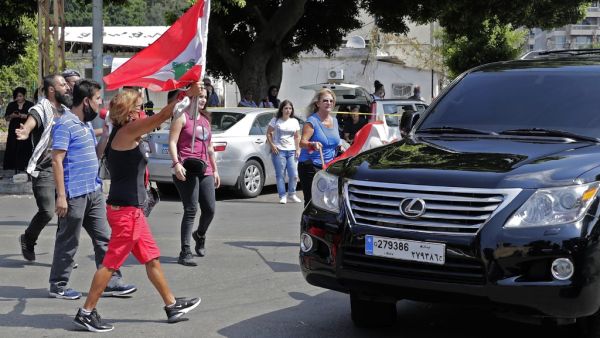Parliament approved the extension of the state of emergency in Beirut Thursday, after the capital was declared a disaster zone following the devastating blast at Beirut Port that ripped through the capital on Aug. 4
Cabinet declared Beirut to be under a state of emergency on Aug. 5 for a period of two weeks by an executive order. Lebanese law states that Cabinet may only issue a state of emergency for eight days. Parliament must approve any period stated within the executive order beyond the first eight days.
The decree was signed on Aug. 7, making Thursday the eighth official day of the state of emergency. Parliament convened and approved the remaining period of the state of emergency, which will now run for the full two weeks called for by Cabinet. It will end on Aug. 21.
Exceptional measures were taken between Aug. 5 and Aug. 7 and were technically illegal, according to Wissam El-Lahham, a professor at Saint Joseph University who teaches constitutional law.
The general session was held at UNESCO Palace as a precaution against the spread of coronavirus, to ensure greater physical distance between MPs in the auditorium.
It began with a minute of silence in respect for the victims of the blast.
Roads leading to UNESCO Palace were closed off and security checkpoints were put in place, as protests were expected by angry Lebanese demanding justice and accountability for the Beirut blast and the removal of the entire political class.
At the start of the session, the resignation of seven MPs was confirmed by Parliament Speaker Nabih Berri. The resignation of an eighth MP, Marwan Hamade, was later confirmed by default as he did not attend the session.
The MPs who resigned after the blast include all Kataeb Party MPs (Samy Gemayel, Nadim Gemayel, Elias Hankash), independent MPs Paula Yacoubian and Neamat Frem, MP Henri Helou, MP Michel Mouawad and Progressive Socialist Party MP Hamade.
With eight ministers resigned, parliamentary by-elections should be held within two months.
MPs of the Lebanese Forces’ Strong Republic parliamentary bloc boycotted the session.
MP Samir Jisr of the Future Movement which is part of the opposition, told reporters his bloc’s MPs did not resign since both Parliament and Cabinet should not suffer from a vacuum at the same time.
A state of emergency per legislative decree no. 52/1967 grants the Army exceptional powers over civilian matters and is responsible for the city’s security matters, and all armed units including the Internal Security Forces, General Security, State Security, Customs and armed forces in other establishments are under their command.
According to this legislative decree, the Army during a state of emergency will have the power to try civilians in military courts for “crimes related to breach of security,” prohibit gatherings it deems a threat to security, shut down sites of assembly, set curfews, censor media, impose house arrests, enter homes at any given time for security purposes, issue fines and deport suspects who pose a security threat.
The massive explosion that tore through Beirut last week has claimed at least 171 lives, injured more than 7,000 and damaged half the city.
Lebanese authorities have asserted that the explosion was caused by the detonation of around 2,750 tons of ammonium nitrate, which was sitting in a warehouse at Beirut Port for six years.
Official documents have shown that officials knew of the explosive material's presence at the port, and that it posed a grave danger to the public.
Prime Minister Hassan Diab’s Cabinet resigned Monday after mounting political and popular pressure following the blast.
Berri had called for Thursday’s session in order to question the ministers on the blast. However, with the Cabinet's resignation, it was no longer possible.
Only three ministers were present at the session: caretaker Deputy Prime Minister and Defense Minister Zeina Akar, caretaker Interior Minister Mohammad Fahmi and caretaker Agriculture and Culture Minister Abbas Mortada.
Diab’s 8-month-old Cabinet did not want to be held responsible for the explosion, as successive governments and officials since the end of 2013 have also been responsible for the presence of the explosive material.
This article has been adapted from its original source.








